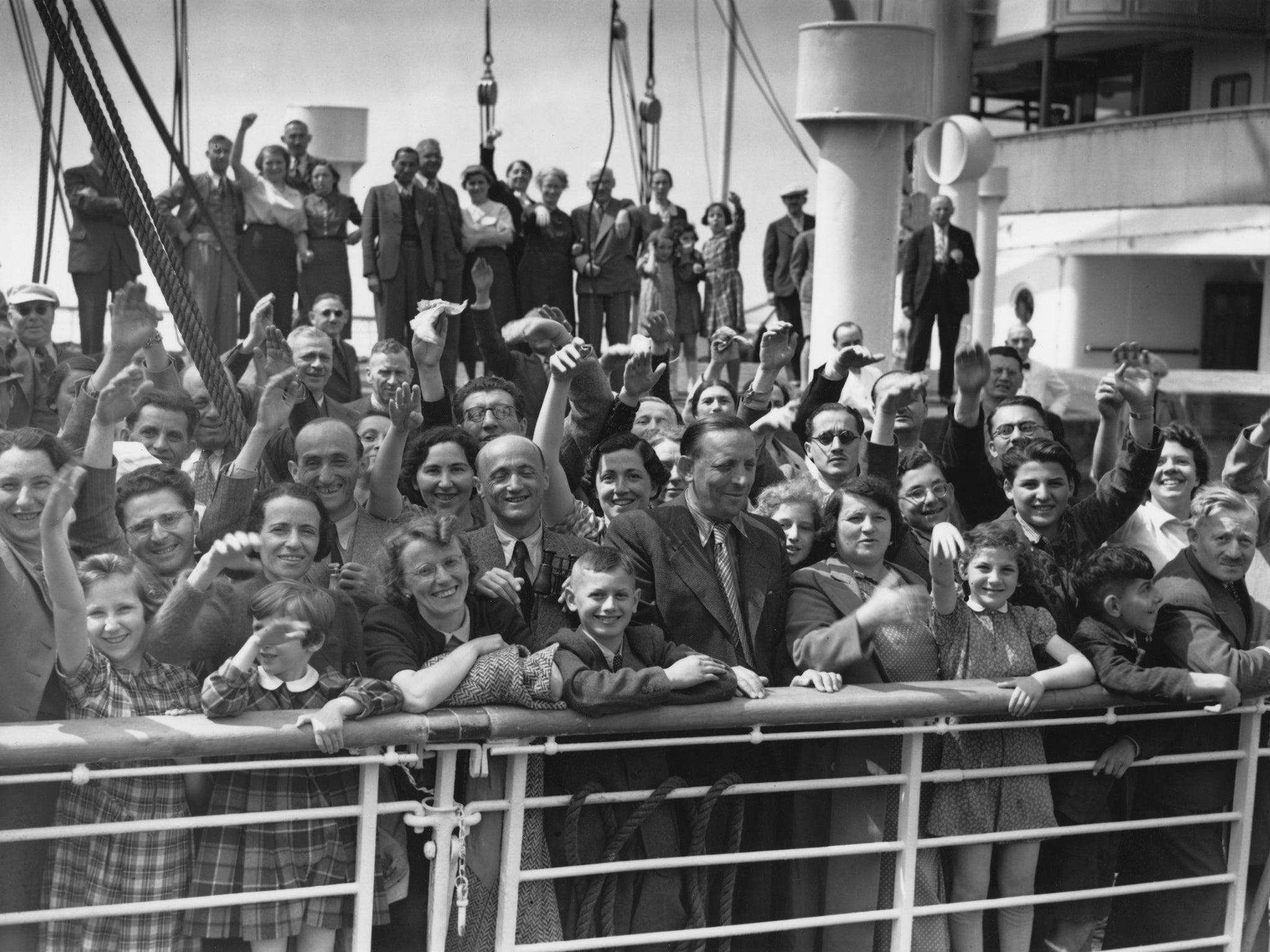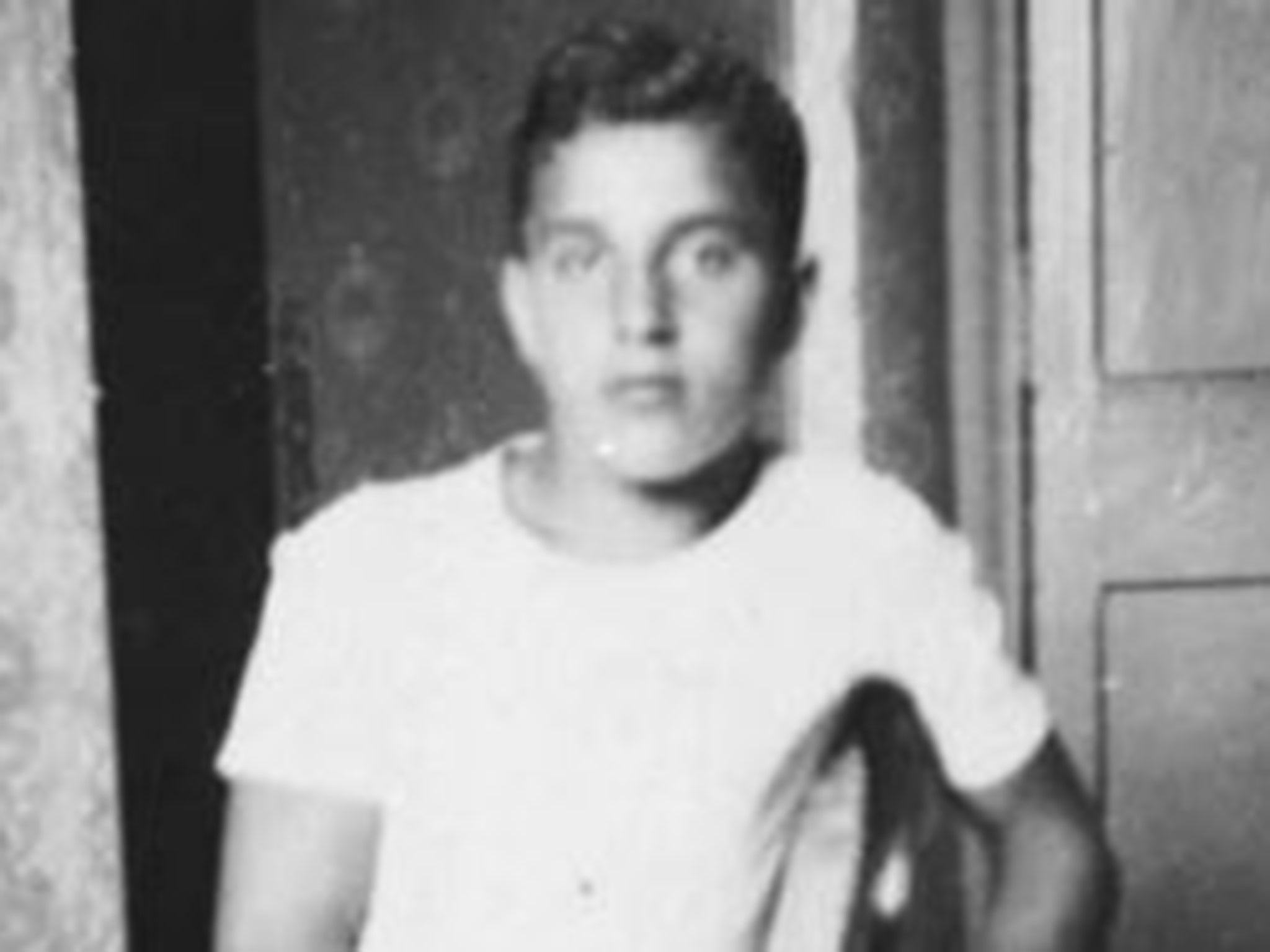Jews rescued from the Nazis believe in helping Muslim refugees
Jewish children with no home and, soon, no parents, were not really welcome in the United States during World War II

Your support helps us to tell the story
From reproductive rights to climate change to Big Tech, The Independent is on the ground when the story is developing. Whether it's investigating the financials of Elon Musk's pro-Trump PAC or producing our latest documentary, 'The A Word', which shines a light on the American women fighting for reproductive rights, we know how important it is to parse out the facts from the messaging.
At such a critical moment in US history, we need reporters on the ground. Your donation allows us to keep sending journalists to speak to both sides of the story.
The Independent is trusted by Americans across the entire political spectrum. And unlike many other quality news outlets, we choose not to lock Americans out of our reporting and analysis with paywalls. We believe quality journalism should be available to everyone, paid for by those who can afford it.
Your support makes all the difference.Our nation of immigrants has been afraid of refugees before.
Jewish children with no home and, soon, no parents, were not really welcome in the United States during World War II when they were desperate to escape the Nazis.
“They told the foster mothers not to speak German or Yiddish at all. They wanted us Americanized, they didn’t want us to talk to each other,” said Herta Baitch, who was just the kind of child refugee that many Americans feared then and fear now.
This week 27 U.S. governors and Republican presidential candidates lined up to announce their rejection of Muslim refugees from Syria. New Jersey Gov. Chris Christie (R) even insisted that he would not allow a “3-year-old orphan’s” entry. On Thursday, the House voted to tighten the flow of refugees from Syria and Iraq over the objections of President Obama, who has pledged to admit 10,000 Syrians over the coming year.
Baitch was 7 when she arrived in this country — one of about 1,400 lucky children who made it to the United States at a time when we turned away at least one ship filled with hundreds of Jews fleeing for their lives. For Baitch, 83, hearing the harsh tone of today’s conversation about refugees hurts.
“It’s a horrible reminder of the Holocaust years, when boats were turned away,” she said.
In a poll that was published in Fortune Magazine in 1938, 67.4 percent of Americans who were asked about allowing German, Austrian and other political refugees into the country agreed that “with conditions as they are, we should try to keep them out.”
In fact, the United States did turn them away. Most infamously, the German ocean liner St. Louis was denied port in Florida. And a quarter of the 908 Jewish refugees aboard who were returned to Europe were killed in Nazi death camps.
When the country of immigrants was closing its doors, a few humanitarian organizations found ways to bring small groups of unaccompanied children to the United States, where they lived in foster homes or found shelter with distant relatives.

Baitch’s parents ended up dying in concentration camps, but her mother’s last act before she was sent to a camp was to find a woman who would take her daughter to the United States.
Baitch now lives in Maryland, a proud great-grandmother, an active member of her community and the constituent of a Republican governor, Larry Hogan, who wants to shut the door to Syrian refugees.
“It’s the children I ache for,” she said.
She understands concerns that terrorists might hide among the refugees coming here. The United States should screen adults, especially unaccompanied men, thoroughly, she said. And, in fact, the current vetting process for any refugee takes 18 to 24 months and involves background checks using digital, passport and biometric information. Different than the papers and rubber stamps of another era.
“So many times, the doors were closed to us,” she said. “They let so few children through.”
Michel Margosis’s family went from Siberia to Belgium (where Margosis was born) to Spain as they fled the Nazis. They hid on a French farm, lived in the slums of Marseille, escaped a detention camp after only one day and crossed the Pyrenees.
Sound familiar to today’s headlines? See the pattern?
In the end, only Margosis escaped, coming to the United States alone as a 14-year-old.
More than 70 years later, he presides over a French conversation club at his Springfield, Va., retirement community, volunteers at the U.S. Holocaust Memorial Museum and is a member of the Fairfax County Human Rights Commission.
He enlisted to serve in the U.S. Army during the Korean War and worked for years as a research chemist for the Food and Drug Administration
But, at 87, he has never forgotten what it feels like to be a refugee. Listening to politicians who want to block refugees in the name of safety, he said, feels “very xenophobic and very regressive.”
“People like [Sen. Ted] Cruz, being the son of an immigrant himself, how can he close the door behind him? That’s not our country,” Margosis said. “We have to keep the door open, or at least ajar. If we don’t keep the door open, the people rejected by us will turn around and join ISIS.”
Eve Boden’s parents were sent to Auschwitz, where they were killed.
She was a little girl when she was sent to a detention camp in France, where she lived in mud up to her knees for five months before a humanitarian organization rescued her.
On her seventh birthday in 1942, she came alone to a country that didn’t really want her. It was a time of American isolationism and anti-Semitism, she said.
The attitudes, the fears, the conversations about refugees “were just as awful then as they are today,” said Boden, who is 80 and runs a psychotherapy practice in Syosset, N.Y.
“Back then, the British opened their arms to 10,000 children. Americans opened their arms to about 1,000,” she said.
“I really understand the fear, the terror the Syrians are experiencing,” she said. “And now, Americans hear ‘Syrian,’ they think of a guy with a mask and an AK-47, not kids who are muddy and skinny and scared.”
She can understand that there is fear among many Americans about Islamist extremists, but too many Americans had similar fears about German Jews.
“You lose sight of the children and the women who are struggling,” she said. “All of these migrants are escaping war. That’s what they want. Escape. Like we did.”
Twitter: @petulad
© Washington Post
Join our commenting forum
Join thought-provoking conversations, follow other Independent readers and see their replies
Comments